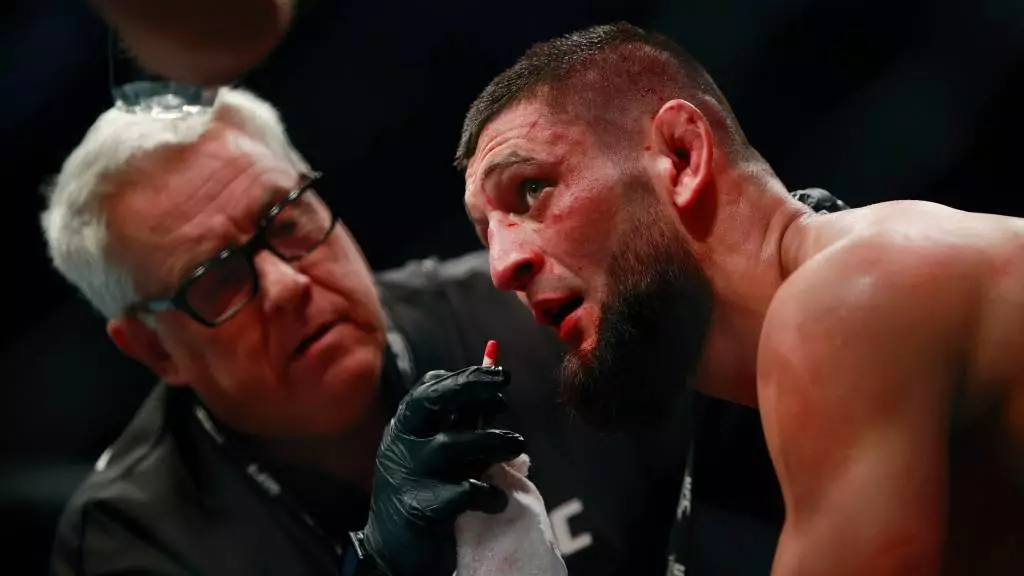As the world of mixed martial arts continues to evolve, exciting matchups are constantly brewing in the UFC. One anticipated clash involves Khamzat Chimaev, a rising star with an undefeated record of 14-0, and the reigning middleweight champion, Dricus Du Plessis. Du Plessis recently defended his title successfully against Sean Strickland at UFC 312, raising the stakes for a showdown with Chimaev, who currently boasts an 8-0 record in the UFC. However, there are questions surrounding the dynamics of this potential clash.
Din Thomas, a seasoned analyst in the MMA community, has articulated some intriguing perspectives on this potential fight. He expressed skepticism about Chimaev’s ability to maintain his explosive style against a fighter of Du Plessis’s caliber, particularly in the championship rounds. Thomas likens Chimaev’s fighting style to that of a sprinter: incredibly fast and aggressive in short bursts but potentially vulnerable over longer durations. Whereas Du Plessis, who is praised for his resilience and strategic acumen in the octagon, may have different plans.
Thomas’s assertion rests on Chimaev’s past performances, particularly his decision victories over strong opponents like Gilbert Burns and Kamaru Usman. Although Chimaev has decimated many of his opponents, those fights revealed glimpses of struggle when forced to engage in longer battles. This raises questions about whether Chimaev can adapt his fight strategy to maintain effectiveness over five rounds.
One of Thomas’s compelling arguments is centered on cardio and pacing. He argues that cardio is not merely about endurance but fundamentally tied to a fighter’s ability to manage their pace in accordance with their skill set. Chimaev has showcased phenomenal finishing ability early in his matches; however, he has yet to demonstrate competence in the championship rounds under intense pressure. Conversely, Du Plessis is known for his capacity to remain composed and strategically push the pace against longer-fought opponents.
In a hypothetical bout, if Chimaev’s aggressive early tactics fail to secure a victory within the first two rounds, he may find himself in deep waters. The longer the fight goes, the more Du Plessis might take control, exposing any perceived weaknesses in Chimaev’s endurance and strategic adaptability. This raises the essential question: Can Chimaev recalibrate his approach if early plans don’t unfold as anticipated?
At its core, a potential fight between Chimaev and Du Plessis symbolizes a broader clash of two philosophies in MMA. On one side stands Chimaev’s dynamic, explosive techniques; on the other, Du Plessis’s calculated and methodical approach to combat. This matchup could very well dictate the future trajectory of the middleweight division, highlighting the critical importance of adaptation, resilience, and depth of skill.
As the MMA community eagerly awaits what could be a blockbuster event, the insights from seasoned observers like Din Thomas serve as a reminder of the complexities involved in fight strategy and the ever-present unpredictability that defines the sport. Will Khamzat Chimaev be able to swim in the deep waters against a durable champion, or will Dricus Du Plessis establish himself as a true master of endurance? Time will tell as the sports world gears up for this potential showdown.

